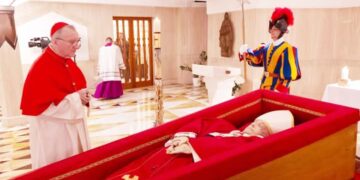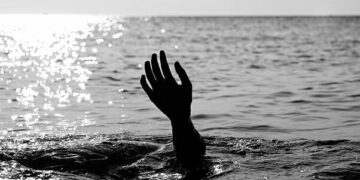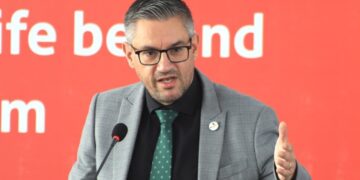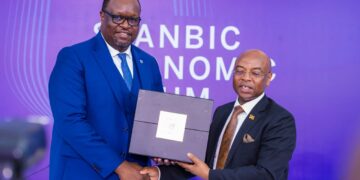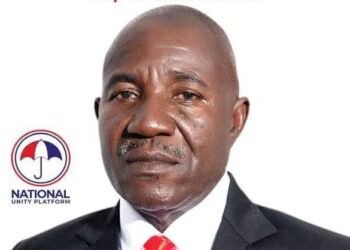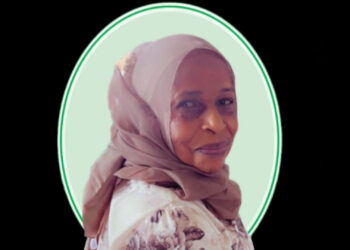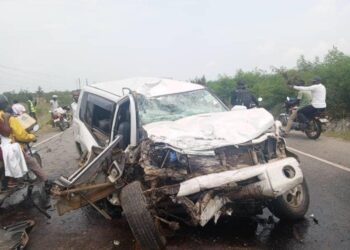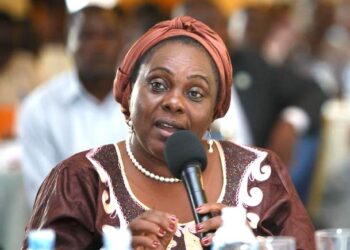By Our Reporter,
OBITUARY
The death of a Pope sets a chain of events in motion—traditions that mark the moments from the Pope’s passing and his funeral to the start of the conclave and the election of his successor.
But what actually goes on in the Vatican during this Sede Vacante or “Vacant See”?
Main changes introduced in 1996 by the Universi Dominici Gregis
Promulgated by Pope St. John Paul II on February 22, 1996, the Solemnity of the Chair of Peter, the Apostolic Constitution Universi Dominici Gregis revised and updated the norms in force until then regarding the apostolic succession in the See of Peter, which had been regulated by Pope Paul VI’s Apostolic Constitution Romano Pontifici Eligendo (1975).
The document is divided into two parts:
– The first governs the Vacancy of the Apostolic See or Sede Vacante, meaning the period between the cessation of the Pope’s governance of the Church and the election of his successor.
– The second outlines the procedures for the preparation and conduct of the election of the Roman Pontiff.
As stated in the introduction, the revision of these norms was motivated by “the awareness of the changed situation in which the Church lives today and the need to take into account the general revision of canon law […] inspired by the Second Vatican Council. […] In formulating the new discipline, while considering the needs of our time, I have taken care not to deviate in substance from the wise and venerable tradition followed until now.” (p. 4-5 UDG)
The Constitution partially confirms the pre-existing regulations concerning the election of the new Pope.
Key points:
The College of Cardinals remains the body responsible for electing the Pope, following a millennial tradition enshrined in precise canonical norms:
“If, indeed, it is a doctrine of faith that the power of the Supreme Pontiff derives directly from Christ, of whom he is the Vicar on earth, it is also beyond doubt that such supreme power in the Church is attributed to him through a legitimate election, accepted by him, together with episcopal consecration.” (p. 5 UDG)
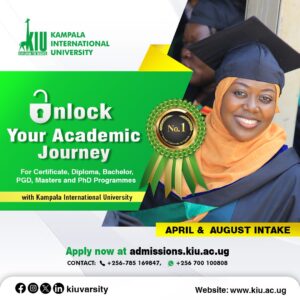
As of 21 April 2025, the College included 135 Cardinal Electors (Universi Dominici Gregis established a limit of 120 Cardinal Electors), 133 of whom were appointed by Pope Francis, and 117 non-electors.
Those who have already turned 80 years old on the day the Sede Vacante begins are excluded. However, Cardinals over 80 may still participate in preparatory meetings (General Congregations preceding the election).
The College of Electors consists exclusively of Cardinals:
“In them, almost in a marvelous synthesis, are expressed the two aspects that characterize the figure and office of the Roman Pontiff: Roman, because he is identified as the Bishop of the Church in Rome and, therefore, in close relationship with the Clergy of this city, represented by the Cardinals of the presbyteral and diaconal titles of Rome, and with the Cardinal Bishops of the suburban Sees; Pontiff of the Universal Church, because he is called to visibly represent the invisible Shepherd who leads the entire flock to the pastures of eternal life. The universality of the Church is, moreover, well represented in the very composition of the College of Cardinals, which gathers members from every continent.” (p. 6 UDG)
The Conclave, as an “ancient institution,” is confirmed as the setting for the election of the new Pope. John Paul II reaffirmed its essential structure and mandated that all election proceedings take place exclusively in the Sistine Chapel of the Apostolic Palace:
“A careful historical examination confirms not only the contingent appropriateness of this institution, due to the circumstances in which it arose, but also its constant usefulness for the orderly, prompt, and proper conduct of the election, particularly in times of tension and turmoil. Precisely for this reason, while aware of the evaluation of theologians and canonists of every age, who unanimously consider this institution not necessary by its nature for the valid election of the Roman Pontiff, I confirm its permanence.” (p. 8 UDG)
“Considering the sacred nature of the act and the appropriateness of it being carried out in a suitable place, where liturgical actions harmonize with legal formalities and where electors can better prepare their souls to receive the inner movements of the Holy Spirit, I decree that the election continues to take place in the Sistine Chapel, where everything contributes to fostering awareness of the presence of God, before whom each one will one day stand for judgment.” (p. 9 UDG)
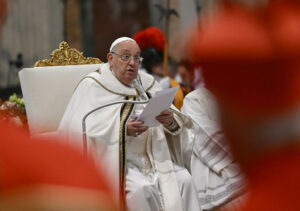
As in the past, the need to safeguard the election of the Roman Pontiff from external influences and to entrust it to a qualified and predetermined electoral body is recognized.
Furthermore, the procedures of the Conclave aim not only to ensure freedom but also to guarantee the independence of judgment of each Cardinal Elector, protecting them from undue curiosity and inappropriate pressures.
Three main changes were introduced by the Constitution Universi Dominici Gregis:
1. For the entire duration of the election, the residences of the Cardinal electors and those involved in ensuring the proper conduct of the election are located in the Casa Santa Marta in Vatican City (p.42 UDG). Previously, cardinals were not allowed to leave the Sistine Chapel for the entire duration of the voting process.
2. Cardinal electors can cast their votes for the election of the Pope only through a secret ballot (p.9 UDG). This abolishes the options provided by previous regulations for an election by acclamation or inspiration (quasi ex inspiratione), which were deemed no longer suitable for reflecting the thoughts of such an extensive and diverse electoral body. The election by compromise (per compromissum) was also abolished as it was difficult to implement and could lead to a certain degree of irresponsibility among electors, who, in this case, would not be required to cast a personal vote (p.9 UDG). Under this method of election, if several rounds of voting failed to produce a candidate with the required majority, the Cardinal electors could unanimously agree to a compromise, adopting a different majority criterion.
3. Regarding the votes required for the valid election of the new Pope, paragraph 75 of Universi Dominici Gregis initially established that after the 33rd or 34th ballot, if no consensus was reached, voting could proceed with only an absolute majority being sufficient. However, this provision was modified by Pope Benedict XVI through the Motu Proprio Aliquibus mutationibus in normis de electione Romani Pontificis, signed on June 11, 2007, and enacted on June 26 of the same year. This restored the traditional rule that for a valid election of the new Pope, a qualified two-thirds majority of the votes from the cardinal electors present is always required.
The Vacant See
The term “Sede Vacante” (Vacant See, in Latin) refers to the period between the end of a Pope’s governance of the Church and the election of his successor.
This period is regulated by the Apostolic Constitution “Universi Dominici Gregis”, issued by Pope St. John Paul II on February 22, 1996.
Who “manages” the Vacant See?
According its provisions, during the vacancy of the Apostolic See, the governance of the Church is entrusted to the College of Cardinals. However, their authority is limited to handling only ordinary or urgent matters and preparing for the election of the new Pope.
The College of Cardinals also assumes all the civil powers of the Supreme Pontiff regarding the Government of Vatican City.
However, they do not have jurisdiction over matters that were exclusively the Pope’s prerogative during his lifetime.
What happens to the heads of the Roman Curia during the Sede Vacante?
Upon the death of the Pope, all Heads of Dicasteries of the Roman Curia resign with some exceptions aimed at maintaining the regular operations of the Vatican.
Those who maintain their duties include: the Cardinal Camerlengo (Cardinal Kevin Farrell), who has the task of overseeing and administering the temporal goods and rights of the Apostolic See during the time of its vacancy; the Major Penitentiary (Cardinal Angelo De Donatis); the Cardinal Vicar General for the Diocese of Rome (Cardinal Baldassare Reina); the Cardinal Archpriest of the Vatican Basilica and Vicar General for Vatican City (Cardinal Mauro Gambetti); the Almoner of His Holiness (Cardinal Konrad Krajewski); the Substitute for General Affairs of the Secretariat of State (Archishop Edgar Peña Parra); the Secretary for Relations with States (Archbishop Paul Richard Gallagher); and, the Master of Pontifical Liturgical Celebrations (Archbishop Diego Giovanni Ravelli)
Also, the Secretaries of the Dicasteries remain in place.
What does the College of Cardinals do during the Vacant See?
During the Sede Vacante, the College of Cardinals (who all convene in Rome, except in cases of health-related impediments) meets in two types of Cardinal Congregations:
1. General Congregations: These include the entire College of Cardinals (including those over the age limit for electing the new Pope). These General Congregations are held in the Apostolic Palace and are presided over by the Dean of the College (Cardinal Giovanni Battista Re). If the Dean and the Sub-Dean are unable to preside, the senior Cardinal elector takes over.
2. Particular Congregations: These are composed of:
– The Cardinal Camerlengo of the Holy Roman Church and three Cardinals, one from each Order (Bishops, Priests, and Deacons), chosen by lot from among the Cardinal electors;
– These three assisting Cardinals serve for three days, after which they are replaced through a new random selection. This process continues even during the election;
– The Particular Congregation handles daily ordinary affairs, while more serious matters must be referred to the General Congregation.
What are the most urgent decisions made by the General Congregations?
The General Congregations (held before the start of the election process) must promptly deliberate on the following key decisions (excluding procedures related to the Pope’s death):
– Prepare accommodations at the Domus Sanctae Marthae for the Cardinals and set up the Sistine Chapel for the election procedures;
– Assign two distinguished and morally authoritative ecclesiastics the task of delivering two reflections to the Cardinals on the current challenges of the Church and the enlightened choice of the new Pope, and set the date for these reflections;
– Destroy the Fisherman’s Ring and the Lead Seal, which were used to authenticate Apostolic Letters;
– Establish the date and time for the start of the voting process.
What happens immediately before the beginning of the election?
The election is preceded by a solemn Eucharistic celebration with the votive Mass Pro Eligendo Papa, attended by the Cardinal electors. In the afternoon, the Cardinal electors proceed in a solemn procession to the Sistine Chapel, where the Conclave begins to elect the new Pope.
At the end of the procession inside the Sistine Chapel, each Cardinal elector takes the oath as prescribed in paragraph 53 of Universi Dominici Gregis. Through this oath, they commit, if elected, to faithfully fulfill the Munus Petrinum as Pastor of the Universal Church. They also pledge to maintain absolute secrecy regarding everything related to the election of the Roman Pontiff and to refrain from supporting any attempts of external interference in the election.
At this point, the Master of Pontifical Liturgical Celebrations proclaims extra omnes, meaning that all individuals who are not part of the Conclave must leave the Sistine Chapel. Only the Master himself and the ecclesiastic designated to deliver the second meditation remain. This meditation focuses on the grave responsibility that rests upon the electors and the necessity of acting with pure intentions for the good of the Universal Church, keeping only God before their eyes (paragraph 52).
Once the meditation is delivered, both the ecclesiastic and the Master of Pontifical Liturgical Celebrations leave. The Cardinal electors then recite prayers according to the Ordo Sacrorum Rituum Conclavis and listen to the Cardinal Dean, who asks whether they are ready to proceed with voting or if any clarifications regarding the rules and procedures outlined in Universi Dominici Gregis are needed.
Measures to ensure confidentiality and prevent external interference
All election procedures take place exclusively in the Sistine Chapel within the Vatican Apostolic Palace, which remains completely sealed off until the election is concluded.
The Apostolic Constitution of Pope St. John Paul II emphasizes the need to ensure complete secrecy regarding everything happening during the Conclave and anything directly or indirectly related to the election of the Pope. The document details all the precautions to guarantee confidentiality and prevent external interference (paragraphs 51-61).
Throughout the election process, the Cardinal electors must refrain from sending letters or engaging in conversations, including phone calls, except in cases of extreme urgency. They are not allowed to send or receive messages of any kind, receive newspapers or magazines of any nature, or follow radio or television broadcasts.
Number of votes required and majority needed for election
To validly elect a new Pope, a two-thirds majority of the electors present is required. If the total number of electors is not evenly divisible by three, an additional vote is necessary (paragraph 62 of Universi Dominici Gregis).
If voting begins on the afternoon of the first day, there will be only one ballot. On subsequent days, two ballots are held in the morning and two in the afternoon.
The procedures for voting are detailed in Universi Dominici Gregis, including provisions for electors who are unwell and need to vote from their rooms at the Domus Sanctae Marthae. After the votes are counted, all ballots are burned.
What happens if the required majority is not reached?
If the electors fail to reach an agreement on a candidate after three days of inconclusive voting, a break of up to one day is allowed for prayer, free discussion among voters, and a brief spiritual exhortation by the Cardinal Proto-Deacon (Cardinal Dominique Mamberti).
Voting then resumes, and if no election occurs after seven additional ballots, another break is taken.
This process repeats after another seven unsuccessful ballots. At this point, the Camerlengo will consult with the Cardinals on how to proceed.
It is important to note that article 75 of Universi Dominici Gregis was modified by the Motu Proprio issued by Pope Benedict XVI on June 26, 2007, which restored the traditional rule requiring a two-thirds majority of the electors present for a valid election of the new Pontiff. This rule was also confirmed in the Motu Proprio issued by Pope Benedict XVI on 25 February 2013, which specified that the votes must be calculated on the basis of the electors present and voting.
What happens immediately after a new Pope is elected?
Once the election has taken place, the last of the Cardinal Deacons calls the Secretary of the College of Cardinals and the Master of Pontifical Liturgical Celebrations into the Sistine Chapel.
The Dean of the College, on behalf of all the electors, asks for the elected candidate’s consent with the following words: “Do you accept your canonical election as Supreme Pontiff?”
Upon receiving consent, he then asks: “What name do you wish to be called?”
The functions of a notary, with two Ceremonial Officers as witnesses, are carried out by the Master of Pontifical Liturgical Celebrations, who drafts the document of acceptance and records the chosen name.
From this moment, the elected candidate acquires full and supreme authority over the universal Church. The Conclave ends immediately at this point.
The Cardinal electors then pay homage and pledge obedience to the newly elected Pope, and thanks are given to God.

The Cardinal Proto-Deacon then announces to the faithful the election and the name of the new Pontiff with the famous line: “Annuntio vobis gaudium magnum; Habemus Papam.”
Immediately afterward, the new Pope gives the Apostolic Blessing Urbi et Orbi from the Loggia of St. Peter’s Basilica. (UDG pp. 87-91)
The final step required is that, after the solemn inauguration ceremony of the Pontificate and within a suitable time, the new Pope formally takes possession of the Patriarchal Archbasilica of St. John Lateran, according to the prescribed rite.
Source: Vatican News
